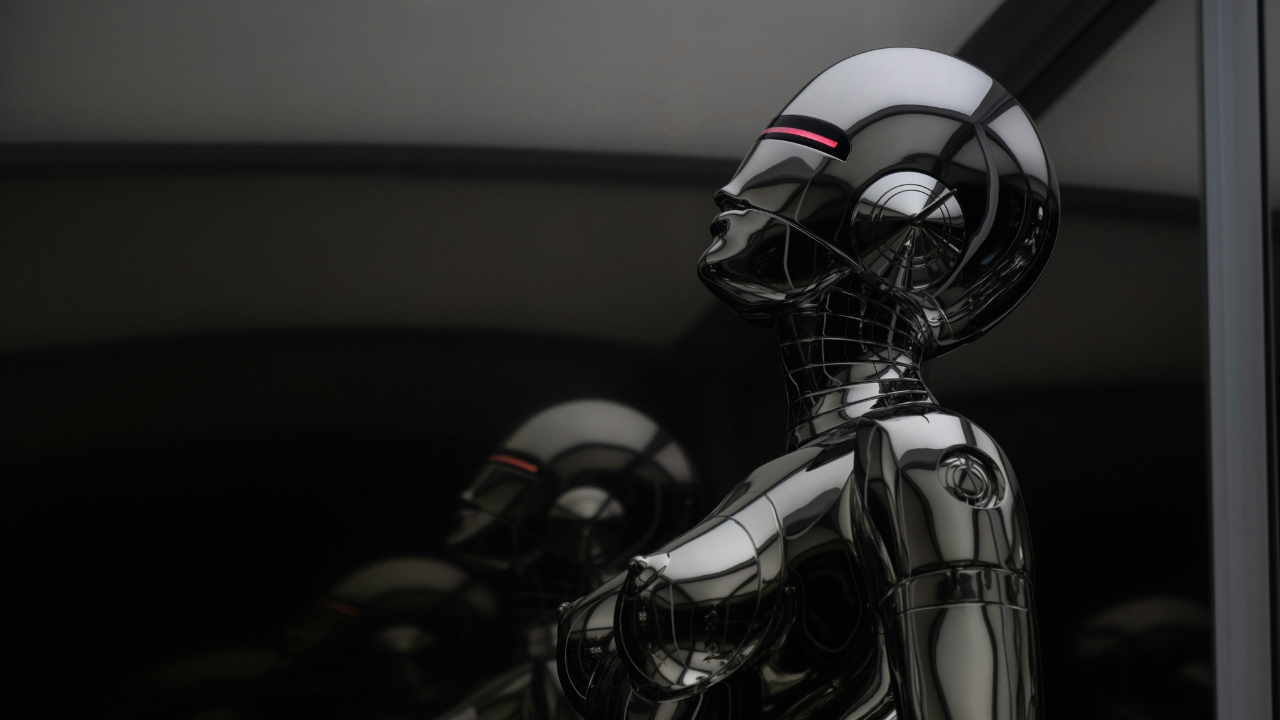A positive impact for humanity
Artificial Intelligence (AI) has emerged as an innovative technology that is revolutionising various aspects of human life and offers immense potential for innovation.
From improving healthcare and education to revolutionising industries and creating new avenues for innovation, AI is changing the world we live in.
In this article, we will explore some of the ways in which AI is having a positive impact on humanity and how it is shaping a better future for all.
Advancing healthcare
AI has the potential to revolutionise healthcare by improving the diagnosis, treatment and care of patients.
Machine learning algorithms can analyse large amounts of medical data, identify patterns and help doctors diagnose diseases more accurately and quickly.
AI-based tools can help detect early signs of diseases such as cancer, heart disease and neurological disorders, leading to early intervention and better outcomes.
In addition, AI-powered robots and virtual assistants are transforming patient care, assisting healthcare workers and enabling remote monitoring, especially in underserved areas.
Improving education
AI is transforming education by personalising the learning experience, responding to individual needs and revolutionising the way students acquire knowledge.
Adaptive learning platforms powered by AI can analyse student performance, customise learning content and make personalised recommendations.
AI tutors and virtual assistants can engage students in interactive and immersive learning experiences, fostering creativity, critical thinking and problem-solving skills, as well as providing access to education for disadvantaged communities and bridging the global education gap.
Promoting sustainability
In the face of environmental challenges, AI is emerging as a powerful ally in promoting sustainability and combating climate change. AI-based algorithms can optimise energy consumption, reduce waste and improve resource management.
From smart grids that manage energy distribution to precision farming techniques that improve crop yields while minimising environmental impact, AI is contributing to a greener, more sustainable future. It’s also helping scientists and researchers model and predict weather patterns, enabling better disaster preparedness and mitigation.
Driving innovation and industry transformation
Artificial Intelligence is a catalyst for innovation, driving industries towards a future of higher productivity, efficiency and economic growth. Automation through AI is revolutionising production processes, streamlining operations and reducing costs. In sectors such as finance, AI-based algorithms are transforming fraud detection, risk assessment and trading strategies. AI is also fueling creativity in fields such as art, music and literature, enhancing human capabilities and pushing the boundaries of society.
Advancing social good and equality
AI has the potential to address social challenges and promote equality. It can be used to analyse social data, identify patterns and tackle issues such as poverty, crime and inequality. AI-powered chatbots and virtual assistants can provide support to people in need, including those suffering from mental health problems. In addition, AI can contribute to disaster relief and humanitarian efforts, helping organisations allocate resources efficiently and respond quickly to crises, saving lives.
By harnessing the power of AI responsibly, we can unlock its enormous potential and create a future where technology is a powerful tool for human progress. As we embrace this transformative technology, let us ensure that AI is driven by ethics, inclusivity and a deep commitment to the well-being of all.
Having reached this point in the article, I would like to say that everything you have read so far has been generated with ChatGPT by this prompt in English: ‘Write an article about the positive impact of AI on humanity’. In 10 seconds I had my article. I just translated it into Italian.
In 10 seconds I had my article.
The future of work in the age of AI
Mine was meant to be a real experiment in the use of AI, a tool that was within everyone’s reach, and I must say that the result did not disappoint.
However, one thought comes to mind.
If a person like me, outside the world of journalism, manages to produce an interesting article on any subject, what will be the future, already uncertain, of those who have studied journalism and made it their profession?
Certainly, within a few years or even months, AI will have an impact on the entire working world, including our professions, but not necessarily in the drastic way that all the media are predicting
Embracing change, not fearing it
I simply believe that those who already have an established profession will have to commit themselves to rethinking and remodelling their knowledge and methods, using these new tools but combining them with the human, active and proactive side that machines do not yet have.
For example, the Harvard Business Review (HBR) predicts that by 2030, 80% of project management activities will be managed by AI, thanks to big data, machine learning (ML) and natural language processing. This new generation of tools will not only transform project management technology, but also the way we work on projects. According to HBR, project managers will need to be prepared to coach and train their teams to adapt to this change by focusing more on human interactions, identifying technology skills gaps in their staff early on and working to address them. In addition to focusing on project deliverables, they will need to focus on creating high-performing teams where members get what they need to perform at their best.
Progress and risk
I feel that I belong to that segment of the population that has followed the technological evolution of the last decades with enthusiasm and curiosity, but I do not deny a certain concern about a possible general drift in its use.
The now galloping misuse of our private data and the global lack of adequate legislation to mitigate potential risks and unintended consequences are issues that we have become accustomed to and that take a back seat to the news of the arrival of these new tools.
It is a bit like the excitement surrounding the invention of plastics in the late 1800s. History teaches us that the sooner we can anticipate and mitigate impacts, the better for everyone.
Silvia Zanatta
Read the other articles in the September 2023 issue of spaceO:
- Apple: How Apple evolved in 10 steps
- Interview with our colleagues: Roberto Leone
- Food and Future: Augmented Appetite
- Metaverse: Metaverse does not exist…yet
- Robotics and the environment: PipeIn
- Security: Cybersecurity









